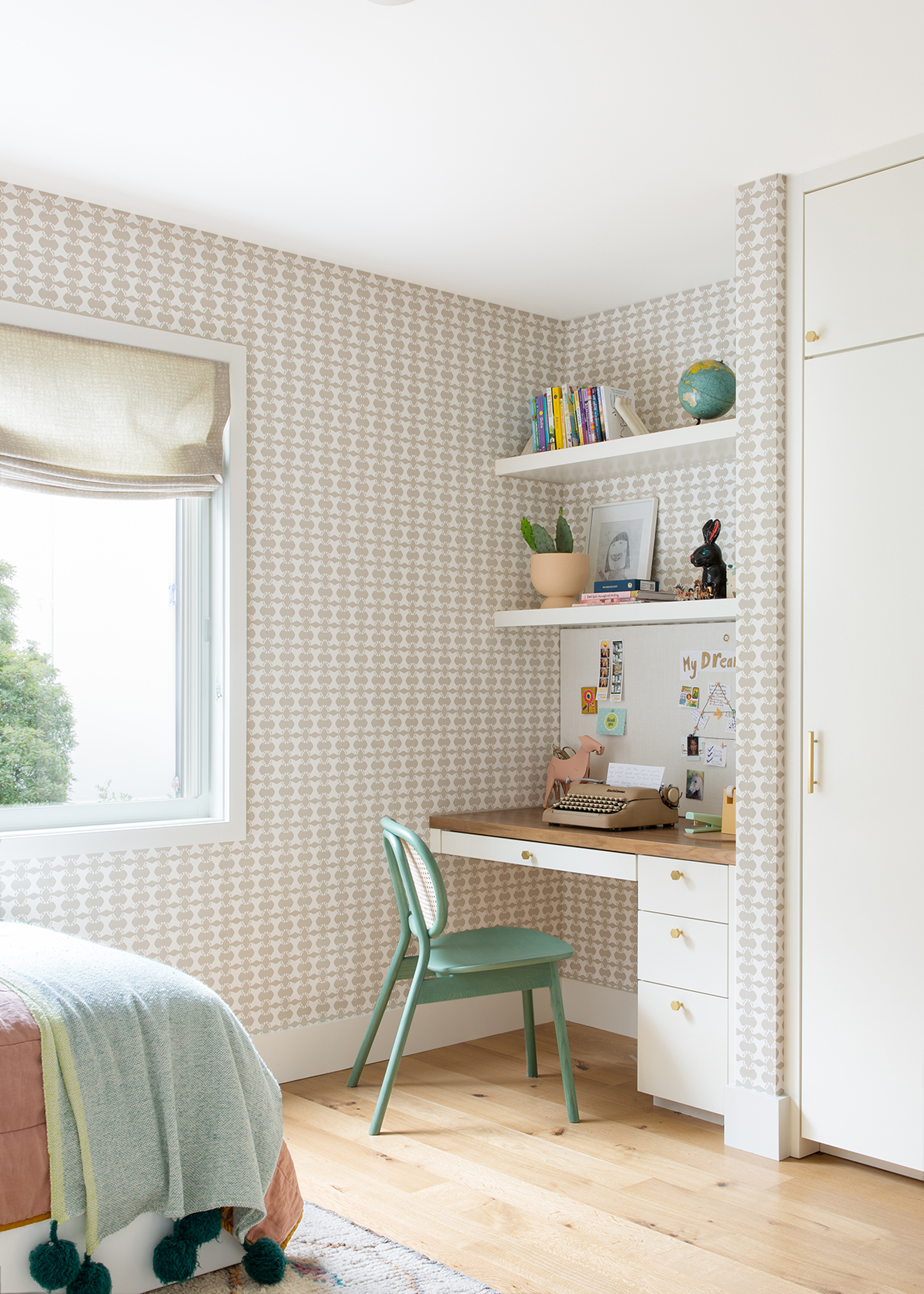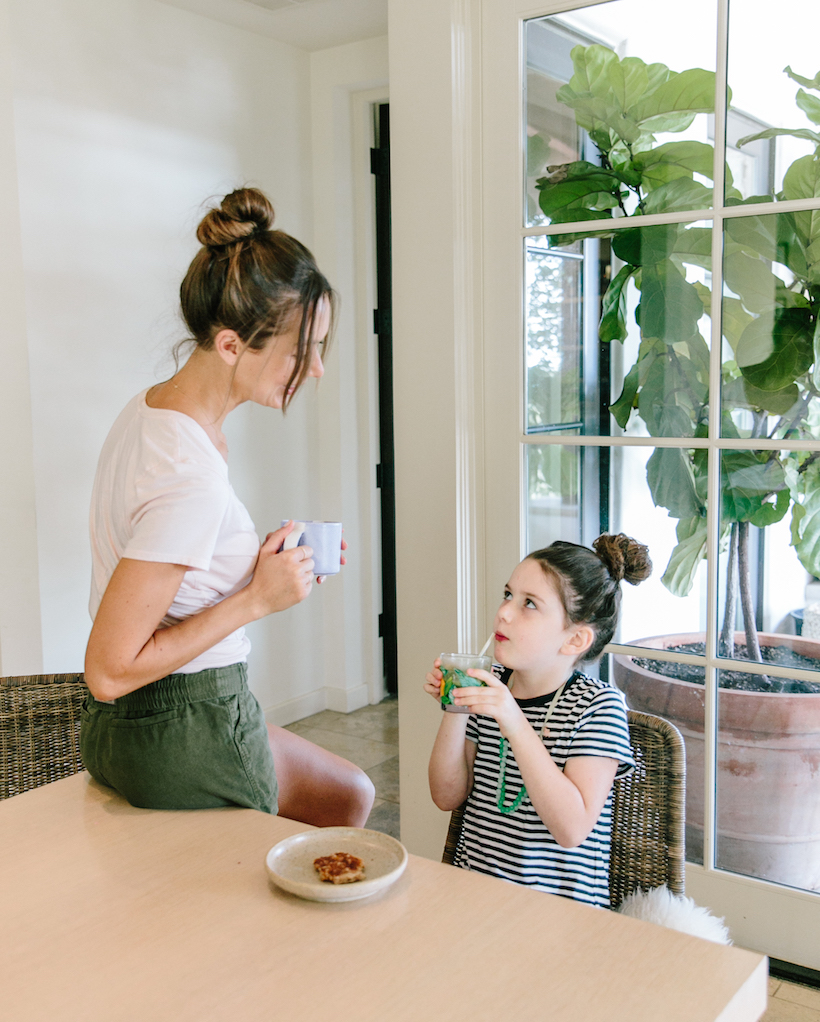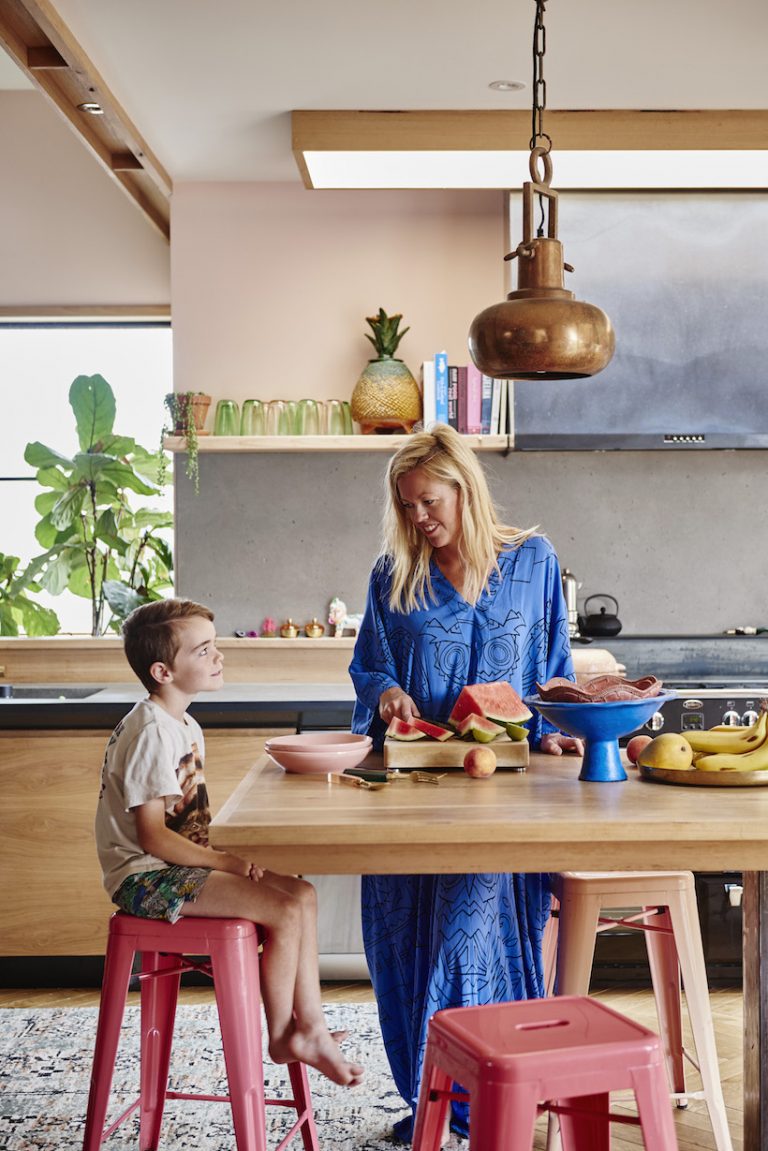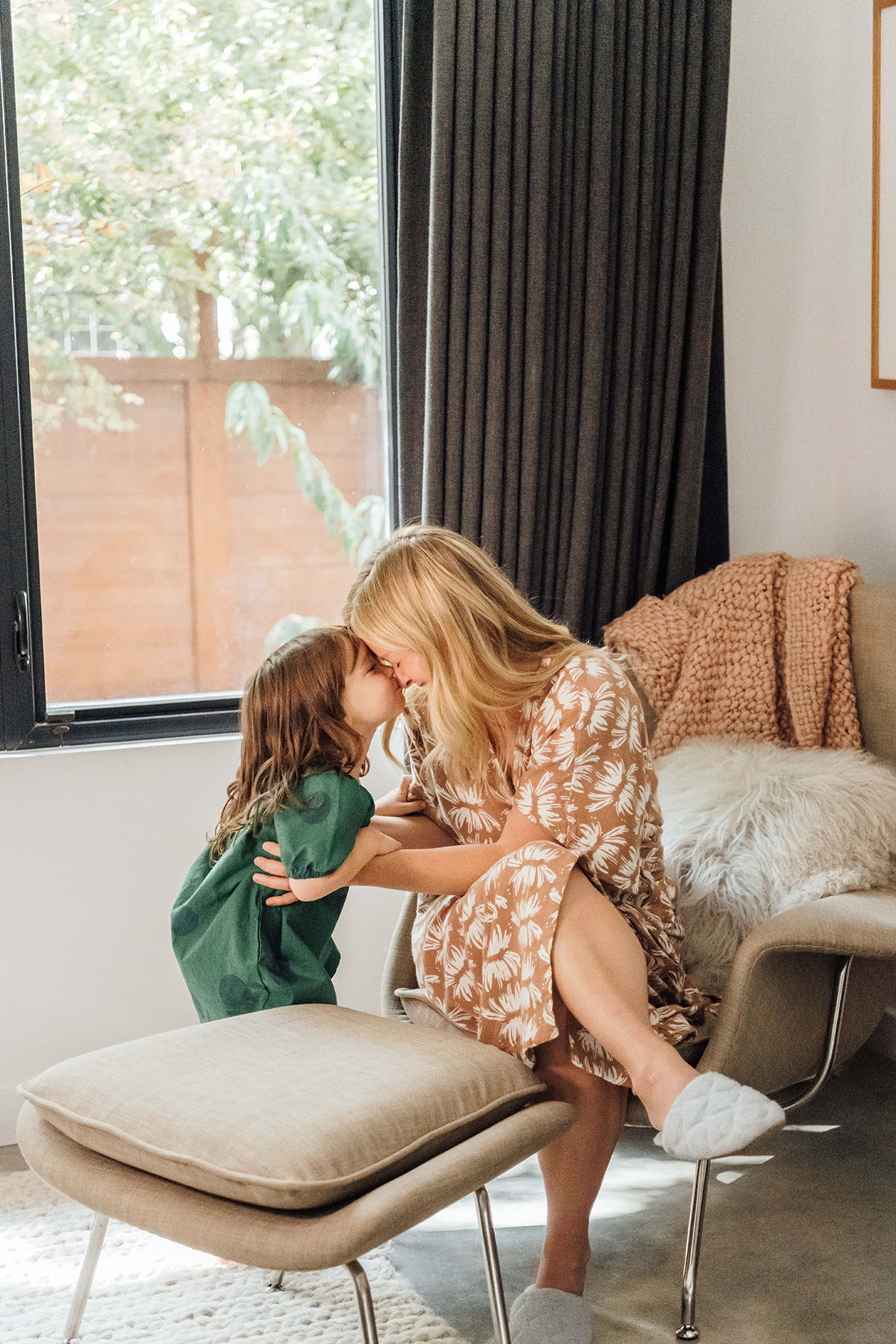Whether your kids are four or 14, it’s never too early or too late to start having healthy conversations and educating them about sex. That might sound wild, but hear me out, it makes a lot of sense. According to The National Campaign to Prevent Teen Pregnancy, one in five young people has sex by age 15, and 35% of girls become pregnant at least once by the age of 20. Furthermore, it’s clear through research that “overall closeness between parents and their children, shared activities, parental presence in the home, and parental caring and concern are all associated with a reduced risk of early sex and teen pregnancy.” Talking to your kids about sex helps your kids establish healthy boundaries around sex. Teaching them about birth control and STI prevention, self-respect, love, and relationships sets them up for success and helps to prevent undesired pregnancy at a young age. But how to talk to your kids about sex is the big question.
Whether you talk to your kids or not, the option for sexual exploration will be present and desired. So, help them move into their teen years armored with a strong sense of good values, factual education, and a safe place to ask questions at home.
We know it’s not always easy, but now that we know how important it is, I’ve laid out seven tips (along with additional reference material and questions to ask) to help you broach this very important topic with your children.
Editor’s Note: I’d love to start this article by stating that parenting advice can be triggering for people no matter the topic. Being a parent is tricky and there’s never a shortage of unwelcome tips to make you wonder if you’re doing things right (or just annoy you). I’d also like to acknowledge that you know your kids better than anyone and this article is full of advice that you can choose to put in your toolbox of parenting ideas or not—we all navigate things differently. My hope is always that even one tip will serve someone well.

Tip #1: Talk Often, Not Just Once!
Having one big sex talk once with your kids and then never bringing sex up again sends the message that the topic is off-limits or shameful. It also puts a lot of pressure on your children to remember everything you said, process huge information, decide how they feel about it, and then move forward with that information in a healthy way. Whoa, so overwhelming when you think of it that way right?!
By educating our children with age-appropriate information around sex throughout their lives, sex becomes less off limits and taboo, in a good way.
Don’t be scared that you’re encouraging them to have sex, in reality, you’re encouraging them to realize it’s a big deal and think about, talk about and make smart decisions surrounding sexual activity. This way when your teens or young adults are ready to engage, they might actually think about asking you for help acquiring birth control, tell you about difficult experiences, or come to you when they need advice or guidance.
Tip #2 Start Young and Tailor to Their Age
So when is the right time to start talking about sex? I think the answer here can be lead by when your kids start inquiring! Don’t feel obligated to give them big information if they don’t need it yet but for sure give them facts and age-appropriate explanations if they’re inquiring rather than ignore it. For some kiddos that may be very young, perhaps when a parent becomes pregnant with another child, and for others, it may not be until elementary school. Each child is different and there’s no “right time.” Go with your gut. Here are some book recommendations for kids of different ages, and below are my tips filtered by age.
Pre-school:
This is a great time to begin teaching children about their body parts, how they interact with other people’s bodies and societal norms around genitals and consent. Another talking point at this age that will serve them well is to talk about what appropriate and inappropriate touch looks like. Remember you don’t have to talk about what it is that the penis and vagina do during sex, or teach them exactly what sex is, rather just give basic information about naming their private parts and what’s appropriate and safe.
Focus on simple statements:
- Correct anatomical language for body parts
- *Psst! If you need some anatomical education yourself before you teach, I like these links from health.gov anatomically male-specific anatomically female-specific
- Respecting when other people say no about their body or touch
- It’s okay to not hug or kiss someone if you don’t want to
- It’s your choice to say no to anything involving your body
- We don’t touch ourselves like that in public but it’s okay to explore your body in private
- 2-5-year-olds may masturbate or explore their genitals. It makes us adults BLUSH and feel weird, that’s a fact, but it’s a totally normal part of childhood development. It’s a good idea not to punish your kids for behavior like this but use it as an opportunity to discuss appropriate body exploration and the difference between being in private and in public, and what societal norms are.

Elementary Age:
This is the right time to have a few gentle and no-pressure conversations about sex. Think *trying to avoid the first time your child ever hears the word sex being on the playground surrounded by weird mistruths and scary stories.
Easy and open mentions in conversation about sex tell your kids that it’s a topic they can ask you about, is something normal and okay to broach, but also doesn’t put pressure on them to learn more if they’re not ready.
A lot of kids aren’t dying for tons of details at this age (most of them think sex is weird and gross) and a quick explanation will typically suffice before their little brain is on to the next exciting thing in kid land!
- Take the mystery and awe out of the topic by speaking matter of factly and giving them solid information.
- In order to guide them in the right direction without getting unnecessarily detailed or descriptive—let their knowledge level guide you.
Tips, Lead-In Questions, and Big Concepts:
- I’m always here to answer these kinds of questions for you, what have you learned about this topic so far?
- What do you think the answer to your question is?
- What kind of experience or conversation did you have that had you thinking about this?
- Tell me more about appropriate touch and inappropriate touch? What you would do if someone was touching you in a way that made you uncomfortable?
- Sex is an experience between parents that takes place when they love each other and want to feel closer.
- What do you know about how your body and private parts change as you get older?
- Do you have questions about your body or your private parts?
- If kids ask personal questions or uncomfortable questions its okay to say:
- that’s a personal question Im not ready to share with you yet
- this idea surprises me, give me some time to think of the right answer
Middle School
If you’re just now starting conversations, that’s okay! Definitely jump in sooner than later though. The less education your kids have as they age, the higher the chance they’re learning things that aren’t true or may be hormonally tempted or socially pressured to participate in sexual activity without understanding the consequences.
Even if you don’t think there is any way your kids are having sex, talk to them! This is the perfect time to instill safety and self-respect messages.
Prime them for confidence, body awareness, and empower them to be in charge of their choices. This is another great time to quiz kids on what they know and then step the answers up a bit from your earlier interactions.
Tips, Lead-In Questions, and Big Concepts:
- Teach them about the responsibility that comes along with sex. It’s a big deal and shouldn’t be taken lightly, especially in teenage years. Make sure they understand what comes along with sex.
- Steer clear of judgment words, or acting as a morality police parent.
- Don’t perpetuate stereotypes by using words or phrases in the home such as “loose”, “slut”, or “that’s how boys are.”
- Remember to focus on the facts—debunk myths and correct any misinformation.
- What do you know about sex?
- What do you know about pregnancy? How do people get pregnant?
- Do you understand sexually transmitted diseases? Birth control?
- Have you ever seen or heard of pornography?
- What do you know about rape? Consent?
- When do you think you will be ready to have sex?
- Do you know how easy/important it is to get tested for sexually transmitted infections?
- Do you know where you can get condoms?
Remember that just listening to your kids and giving them an opportunity to ask questions and talk becomes more and more important the older they get.
Phew! If reading this makes you nervous, you’re not alone. This. is. hard. stuff. It’s so okay to be embarrassed yourself, or feel awkward! You can tell your kids that too.
I.E. “This can be a hard topic, and I might need some time to research or think about your questions and get back to you because I want to do a good job answering them.”
It’s also possible that your kids may not be ready to talk about it all at once or they may act like they’re not listening. Reinforce that it’s okay to be embarrassed or you need time to think about this information, as long as they know you are here for them and it’s okay to talk about this with you will help build trust.
Shy Tweens and Teens:
- If your teen is especially shy or unable to converse with you, you might ask if sending them some helpful information in a text or email would be easier for them to process or feel less embarrassing.
- Think about having these conversations in a safe space and keep it informal.
For example:
- A longer ride in the car where your kids don’t have to look you in the eye but will likely hear you is an open and easy environment for many teens.
- On a hike or a walk without your phones where they have all your attention and you have theirs.
Tip # 3: Be an Open Book
Again, because it’s so important, make it crystal clear your kids can ask you questions about anything from a young age. Go ahead now, be the cool parent here. The more open they feel they can be with you, the more you can help guide them through pivotal events and hard spots in their life. If their questions are ever too advanced for your comfort at their current age, it’s also okay to say hey that’s a good question but I think the answer is better saved for when you’re older, and then provide them with a more age-appropriate answer or read them a book geared towards their age.
If they get embarrassed, remind them it’s okay to be embarrassed, and there’s no pressure to talk about anything they don’t want to, but they don’t need to feel ashamed of their bodies! You’re setting the tone for body positivity when you keep it open and light and reinforce that shame isn’t a concept they need to associate with their body. How empowering!
Tip #4: Let Life Give you Opportunities to Discuss
The opportunities to bring up navigating sex, stranger danger, sexuality, gender stereotypes, sexism, boundaries with our bodies, consent and so, so, so much more abound these days. Think about talking to your kids about current events, news stories, and what you see together on TV, in movies, or hear on the radio. You may be surprised to hear what your little ones think or feel when being presented with these opportunities to vent and explore. It also allows you to guide their thinking with interesting and motivating questions, themes, and ideas. We tend to shy away from these topics when in reality there is so much opportunity to teach important and valuable lessons about self-respect, love, kindness, and impart little tips we may have had to learn the hard way or much later than we would’ve liked to. Open your eyes to the teachable moments, or consider sharing your own stories.
Teachable moments in life can be the easiest way to have lots of conversations over time with your kiddos. They are more approachable and relevant to the moments you move through and the times we live in!
Tip #5: Create a Strong Foundation & Healthy Boundaries
Parenting with intention, putting in the time, and “just in case” checks to be sure your kids are safe is worth its weight in gold in your kid’s jr. high and high school days. Your kids will undoubtedly hate it at one point or another but totally thank you later. You can’t always be the cool parent and that is so okay, too.
- Setting healthy boundaries at home helps kids engage in healthy vs risky behavior. Healthy boundaries include curfews, asking to speak with the parents of their friends via phone prior to hangouts, and confirming where your kids are and when if you’re not around.
- Family rules around dating. Be clear about these rules in advance—you choose what feels right.
- Teach your children young about what kinds of traits and qualities are admirable and desired in a partner.
- Teach them when to put their foot down if they don’t like the way they’re being treated.
- Instill a sense of self-worth and value in their relationships and time spent.
- Instill in them the confidence to stand up for themselves and others in situations that don’t sit well with them.
- Talk about relationships outside of the binary. By talking about relationships between men and women, men and men, and women and women, children are less likely to perceive any feelings they may have that fit into the heterosexual norm as wrong and will be more willing to speak to you about them, too.
- Make sure kids know you love them no matter what.
- Remember that not all kids are heterosexual and cisgender. Obviously, tailor your teaching to how they identify. If this concept feels foreign and scary to you that’s okay, you’re allowed to be learning and thank goodness there are so many resources online
- for gender-inclusive information on parenting an LGBTQIA child check out this helpful guide.
Tip #6: Give Them Resources
Just because you don’t want to know or perhaps had hoped for something different for your teen doesn’t mean sex or behavior that you’re not loving potentially isn’t happening. Stay realistic and open-minded as your kids get older, and hope and trust that the education and knowledge you gave them will serve them well.
When your teens are in hard situations, it’s better for them to come to you than have no one to turn to. So be an open book with pages full of love, and listening, and hold the judgement.
Ask them repeatedly, yes annoyingly, if they understand the consequences of sex and sexually transmitted diseases and continue to reinforce the responsibility that comes with having sex.
- Take your kids to regular preventative healthcare appointments with a provider you trust and like and allow them some closed-door time alone. Talk to the provider beforehand and let them know you would like it if they could give your kiddo a few moments to ask questions and get education from someone besides you.
- Continue to give your teens opportunities to ask anything.
- Ask your teens point-blank if they need any resources or education around sex.
- Be sure they know where a healthcare clinic is they could call in private or be taken to in order to get STI testing and birth control if needed.
Tip #7: You Don’t Have to Be Perfect.
If your conversations aren’t perfect, that is sooooo okay! Try to keep in mind that it’s the OVERALL picture in regards to how you raise your child that they will carry forward and remember in life, not the little moments. We all make mistakes, we flub, we’re awkward, we don’t get it right the first time, every time. This is part of the beauty and the pain in living. Get it right most of the time and make sure your child knows you love them and you’re figuring out life too. The sooner our children realize we’re all people, the more their capacity for forgiveness will begin to expand.
RESOURCES:
2. https://www.cdc.gov/healthyyouth/protective/pdf/talking_teens.pdf
4. https://www.plannedparenthood.org/learn/parents/tips-talking








